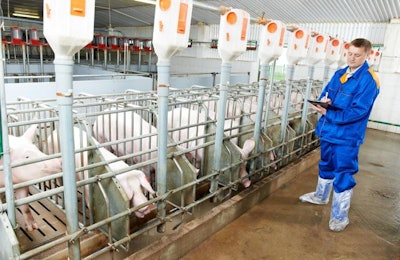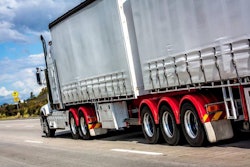
New animal production protocol needed to prevent the novel coronavirus from threatening food security
After watching the new coronavirus (COVID-19) pandemic unfold in dairies in Italy and around the world, company leaders at Alltech have begun distributing advisories regarding protocol they say are necessary to prevent the virus from grinding animal production to a halt.
While the protocol necessary to stop the spread of COVID-19 are relatively basic — handwashing, limiting social contact — they may not be commonplace among animal production laborers, according to Jorge Delgado, a dairy specialist with the Alltech On Farm Program. Cultural and communication barriers could lead to outbreaks and labor shortages that leave farm managers without the workforce they need to care for their animals, Delgado warned.
“If there is nobody to milk the cows, the business is going to shut down,” he said. “We’ve seen that in reports from Italy, where the farmers stop milking cows, and they can’t milk the cows because there are no people to milk the cows.”
In China, Delgado said, farm managers are taking the temperature of every single worker when they arrive, and if anyone shows signs of fever, that worker is sent home to prevent him or her from spreading the virus to other employees. But China has more agricultural workers. The U.S., Delgado said, doesn’t have an adequate supply of laborers to start sending workers home en masse.
“If we lose these guys, then the dairy is done,” he said. “That’s the reality.”
Distributing fact sheets
To prevent this reality, Alltech organized a team to produce and disseminate fact sheets in Spanish and English outlining how to prevent the spread of COVID-19 on farms.
Delgado, who was part of the team behind the fact sheets, said they had observed that animal production workers did not always practice basic hygienic protocol, and did not always have access to the basic tools needed to do so. Hand soap, for example, was not always made available in dairy bathrooms.
Good biosecurity protocol that prevent the spread of animal diseases will also aid in the prevention of COVID-19. For example, Delgado said, dairies — and all labor-intensive animal operations — should not allow any non-essential visitors into their facility. It also helps, he said, to designate a single entry and exit for each facility, to limit the exposure introduced by essential visitors such as feed delivery drivers.
But unlike animal diseases, COVID-19 can be transmitted in common social settings like grocery shopping. This means managers need to create a “culture of self-quarantine” among their workers, who may sense that they are exempt from stay-at-home orders because they need to be physically present at work.
If workers live in group housing, they should be instructed to designate a single individual who goes leaves to pick up groceries, Delgado said. Nonessential outings or gatherings should be shunned. When in public, workers should be taught to keep six feet between themselves and others, and to wash their hands for at least 20 seconds after coming into contact with public surfaces. Groceries or other goods brought into the household should be disinfected.
“The key for these guys is to avoid as much as possible contact with other people in society,” Delgado said. “Because these businesses need these people, they need to be very careful in taking care of every single individual. Each one is critical.”
Spreading accurate information
Delgado said he was concerned that some production workers may not get accurate information about preventing COVID-19 due to cultural and language barriers.
“They’re working in a country where they don’t have a lot of information in their language,” he said. “The news and everything is in English. So they go to Instagram or Facebook or hear from other Hispanic families, and they don’t have scientific information. These guys are not well informed, so we have to inform them.”
While important to preventing COVID-19, Delgado said he believed the pandemic should prompt lasting change in animal production with respect to worker hygiene and safety.
“This is something we should all ask ourselves,” Delgado said. “Washing hands every three hours for 20 seconds should be part of our life in society now. If you are sick, don’t go to work. We are taking things for granted, and with viruses mutating and changing, it’s just getting worse. It’s going to be a big, big change for everybody and a big lesson after this is done.”
Delgado said Alltech felt obligated to address the situation out of concern for nationwide food security, not out of a desire to sell products. In fact, the company has temporarily stopped sending salespeople and consultants to farms to demonstrate products.
“This is a matter that will affect everybody if we don’t do something right now,” he said. “We can’t just say we’re stuck at home, and we’re going to be protected. These people are still going to work every day to feed their families and feed this country, so we have to do everything we can to share this information.”











